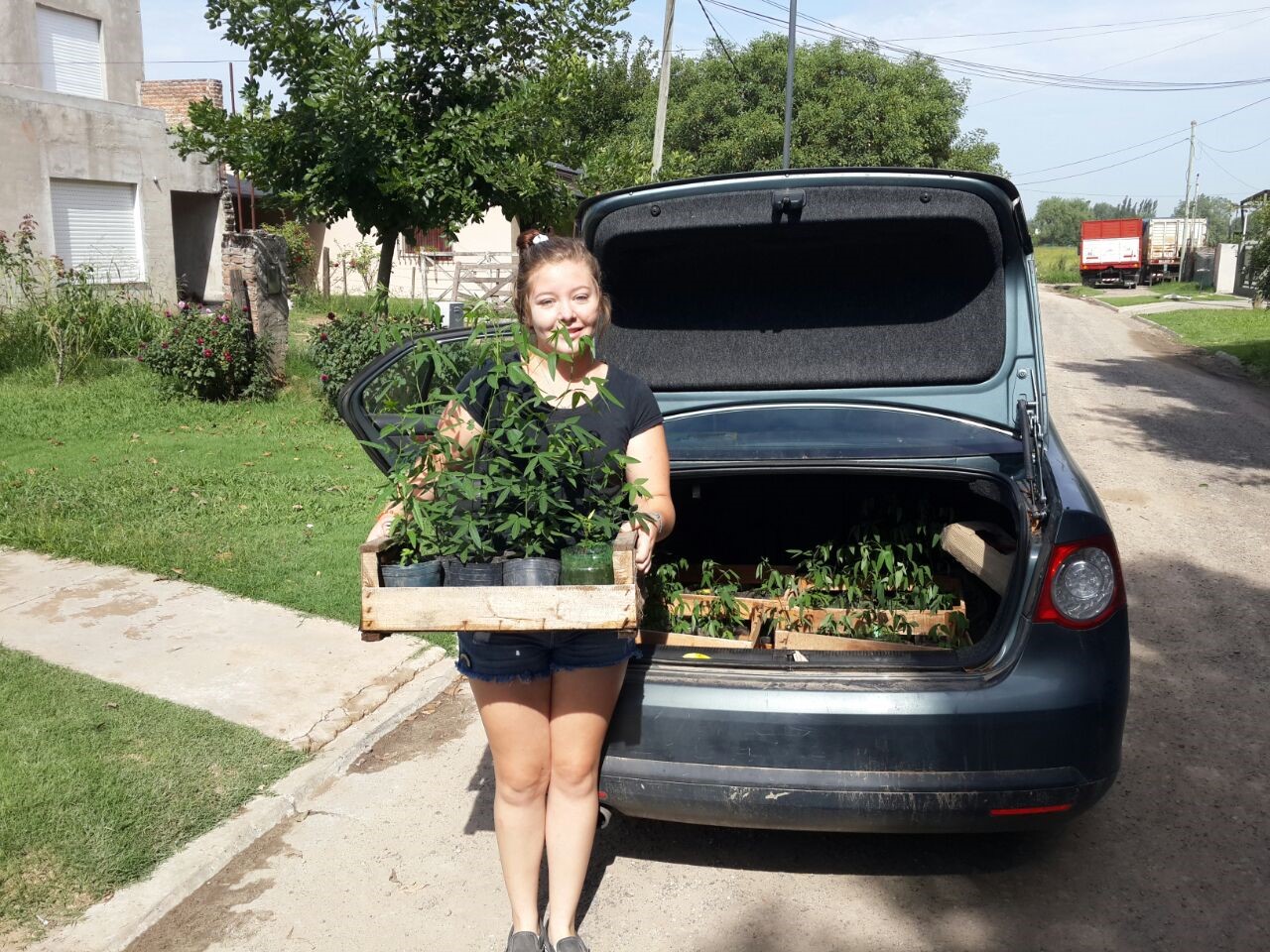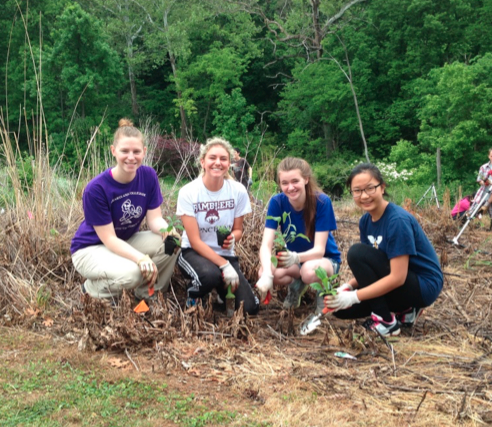Bees provide up to 1/3 of our diet, which may seem small, but includes a variety of foods such as: fruits, vegetables, grains, and even meat. Kendra’s proposal was to plant gardens with bee-friendly flowers in the community to help these small workers.
By planting these gardens, bees are offered a constant source of nutrients and a healthy habitat that uses no harmful chemicals on the plants. The implementation plan was fairly simple, and included buying the supplies, finding locations, setting up gardens, and planting flowers and plants. “It is easy and anyone can do it.” States Kendra. “The smallest effort can make a huge difference.”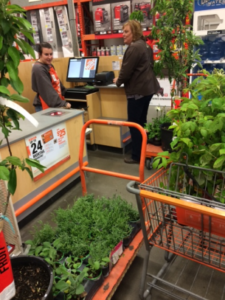
Timeline and Budget:
- February 29, 2016 – Figured out location for project and contacted beekeeper Debbie Moors
- March 1, 2016 – Brought home donated tires for gardens ($0)
- March 31, 2016 – Shopped for garden beds and soil at Home Depot with Susan Payne ($360)
- April 28, 2016 – Shopped for plants at Home Depot with Susan Payne ($330)
- May 7, 2016- Set up multiple recycled tire gardens around the community
- May 8, 2016 – Set up gardens ($0)

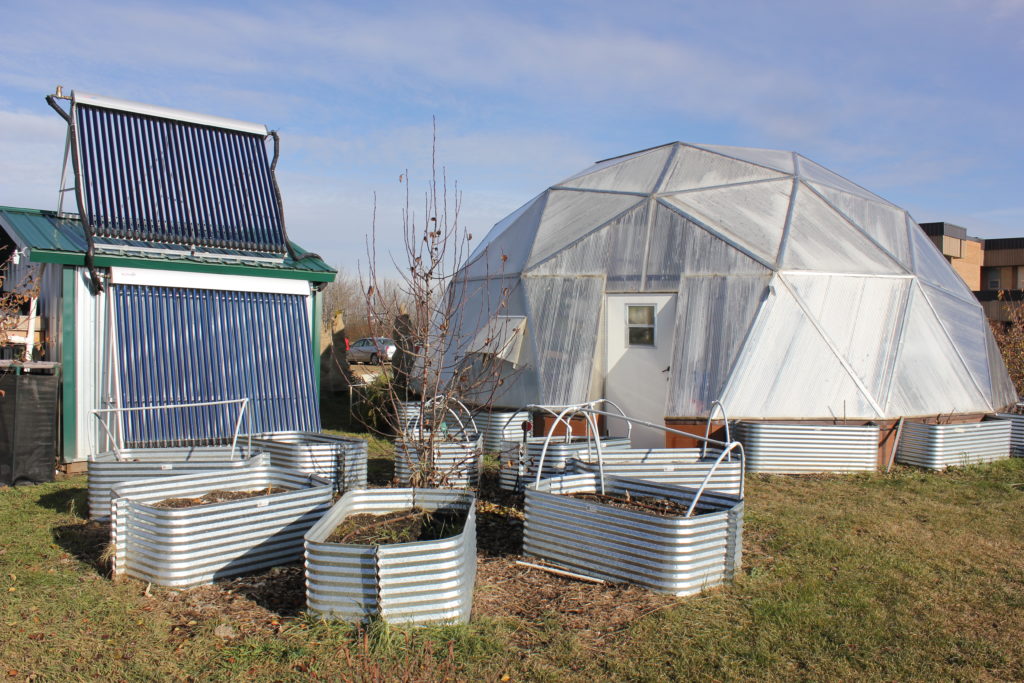
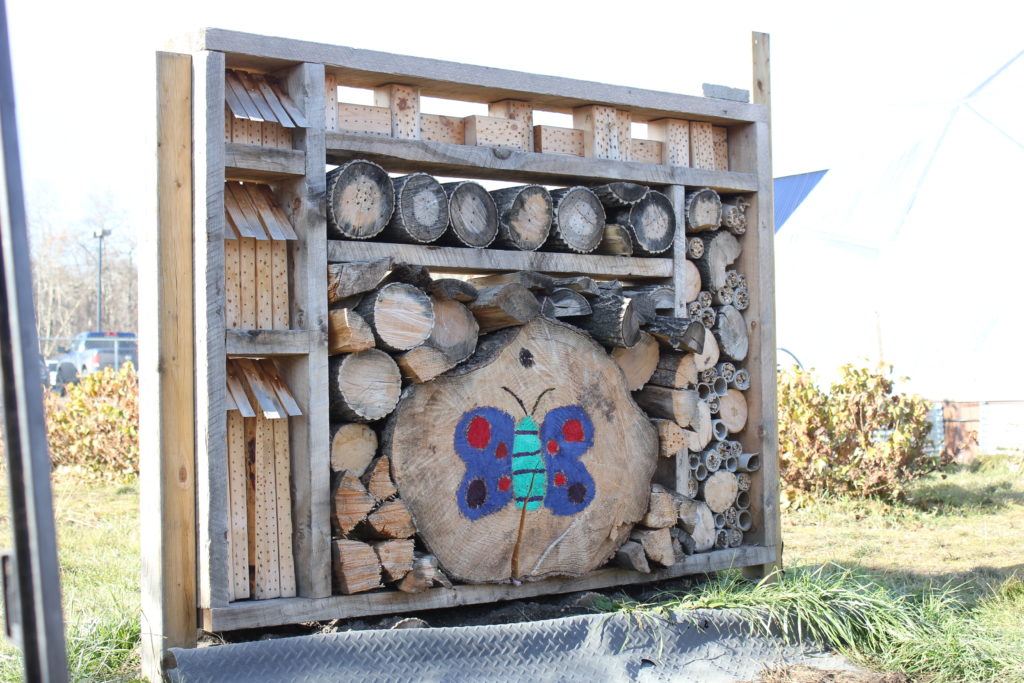 challenges by installing a drip irrigation system in their gardens. The irrigation tube (shown left) is dug into the soil to water the plant’s roots while minimizing the rate of evaporation. The system could also be set on a timer to water regullary, with options to delay watering if there is significant rainfall.
challenges by installing a drip irrigation system in their gardens. The irrigation tube (shown left) is dug into the soil to water the plant’s roots while minimizing the rate of evaporation. The system could also be set on a timer to water regullary, with options to delay watering if there is significant rainfall.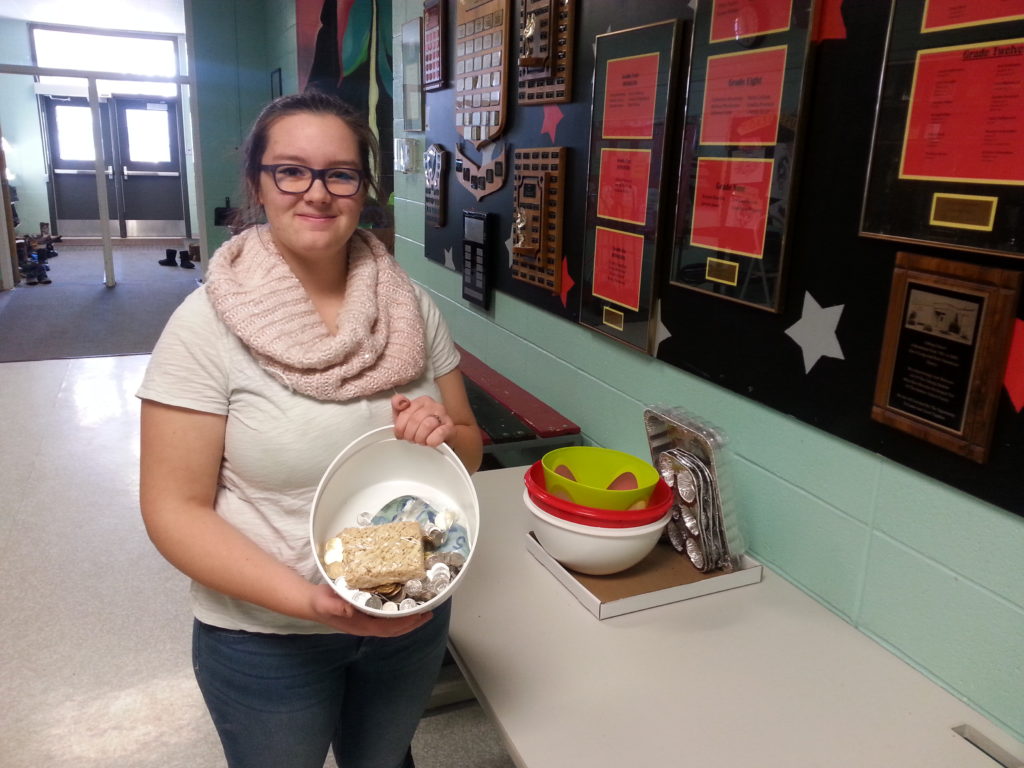 help protect her watershed by protecting wetlands. She learned that wetlands are important habitat for lots of animals, help improve water quality, and help store water for dry times.
help protect her watershed by protecting wetlands. She learned that wetlands are important habitat for lots of animals, help improve water quality, and help store water for dry times.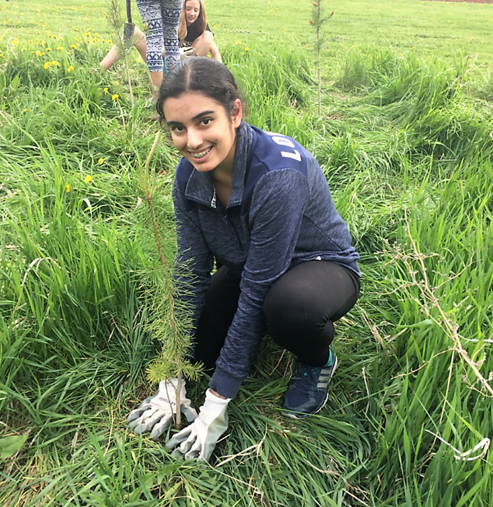 Watersheds program, and the third time she was in the final competition.
Watersheds program, and the third time she was in the final competition.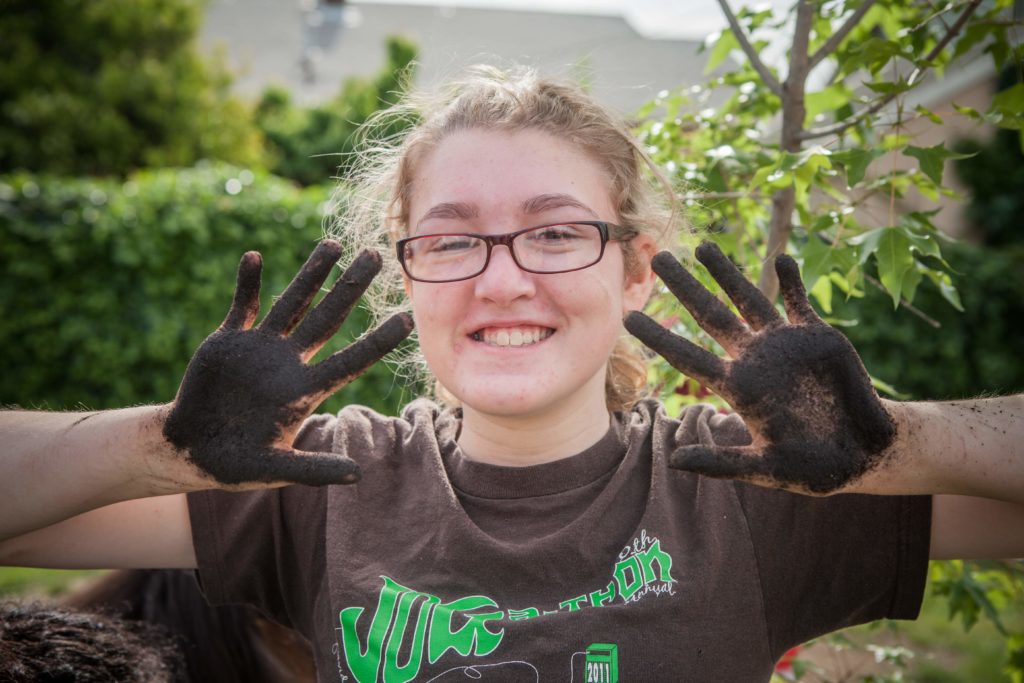 new tree in the area, protecting it with a planter wall, and reseeding the remaining bare areas. The plantings would stabilize the bare soil and reduce sediment delivery to nearby waterways. Of course, the tree planting would also provide shade to the kids playing in the yard at recess and outdoor learning activities. Sandra organized special teams of kindergartners and their 6th grade “buddies” to help with site preparation and planting. After the planting, she organized “work parties” with school parents to build the planter wall and finish the remaining work. Nutrien project funding helped to buy supplies, soil, plants, and seeds for the project, which will benefit both the environment and the school community for generations to come.
new tree in the area, protecting it with a planter wall, and reseeding the remaining bare areas. The plantings would stabilize the bare soil and reduce sediment delivery to nearby waterways. Of course, the tree planting would also provide shade to the kids playing in the yard at recess and outdoor learning activities. Sandra organized special teams of kindergartners and their 6th grade “buddies” to help with site preparation and planting. After the planting, she organized “work parties” with school parents to build the planter wall and finish the remaining work. Nutrien project funding helped to buy supplies, soil, plants, and seeds for the project, which will benefit both the environment and the school community for generations to come.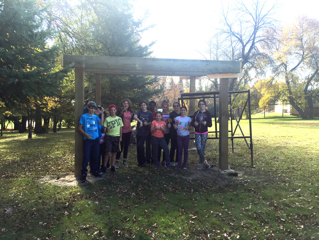 have poor agricultural capabilities and much of the Southern portion of the Cypress River Watershed is considered moderately to severely at risk of soil and bank erosion.
have poor agricultural capabilities and much of the Southern portion of the Cypress River Watershed is considered moderately to severely at risk of soil and bank erosion.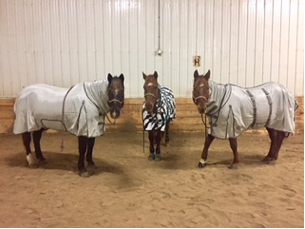
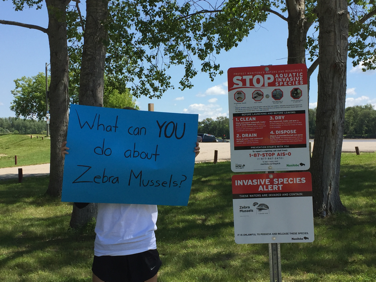 relatively new problem to Lake Winnipeg, as they were only confirmed in 2013” Brownyn felt it was important to raise awareness- and fast. “They reproduce extremely quickly and can rapidly invade new areas; the female zebra mussel lays approximately one million eggs in a year!” Zebra mussels create plenty of problems for water bodies, causing “millions of dollars of damage to the Great Lakes area alone.”
relatively new problem to Lake Winnipeg, as they were only confirmed in 2013” Brownyn felt it was important to raise awareness- and fast. “They reproduce extremely quickly and can rapidly invade new areas; the female zebra mussel lays approximately one million eggs in a year!” Zebra mussels create plenty of problems for water bodies, causing “millions of dollars of damage to the Great Lakes area alone.”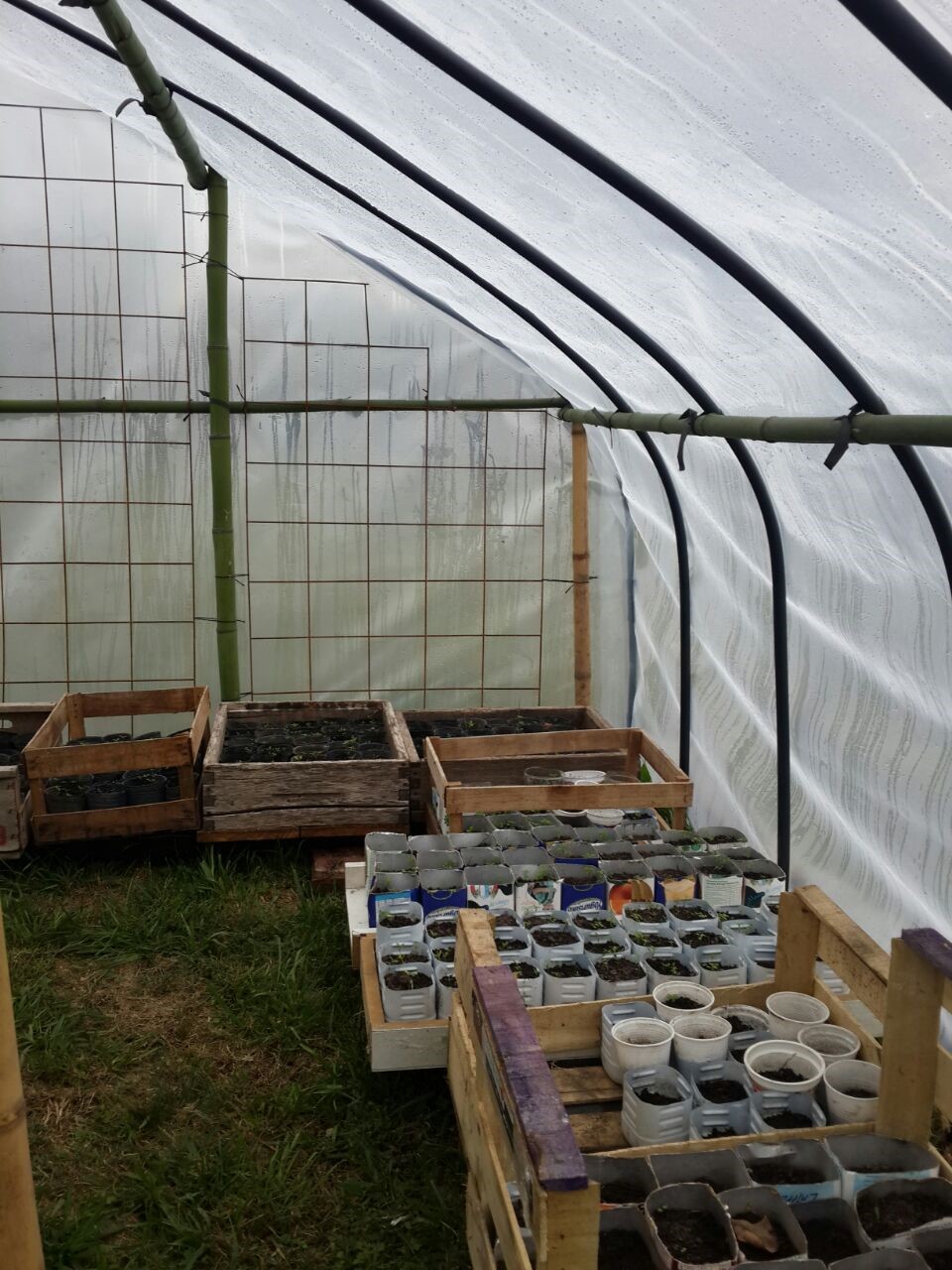 2016 San Antonio de Areco, Buenos Aires, Argentina
2016 San Antonio de Areco, Buenos Aires, Argentina